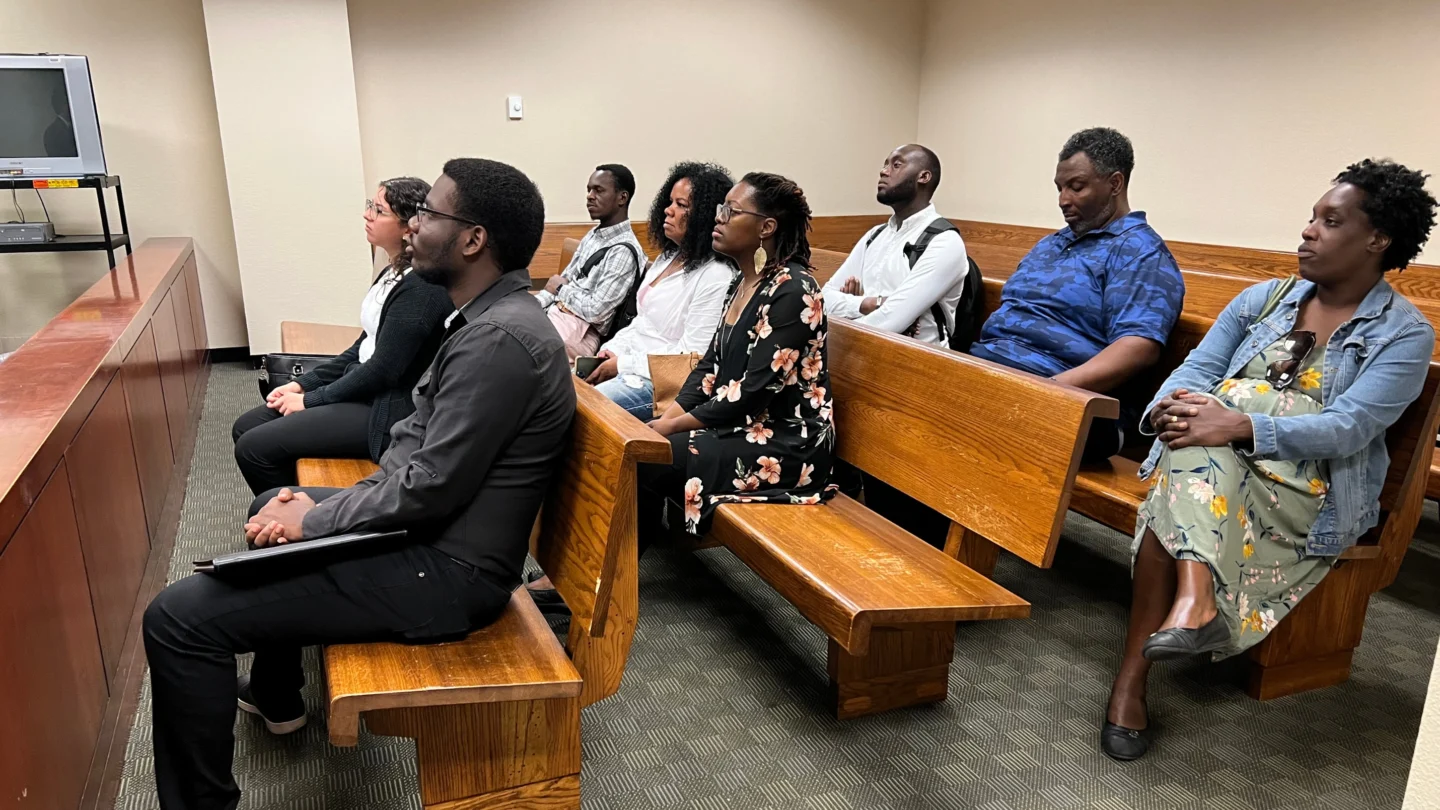What we hope to hear on immigration in Biden’s first State of the Union address
A year ago, I wrote this celebratory post, commending the Biden Administration’s announcement that it would stand up the Task Force on New Americans, a mechanism for the federal government to advance a vision of full belonging for immigrant Americans and one that has existed since the Bush administration.
A year later, the Administration faces significant and justified criticism from the field for its failure to advance core immigration priorities, though a number of efforts to address immigration policy have also been lauded. We have been particularly pleased to see work within USCIS advancing citizenship and a stronger narrative around a more welcoming America.
And now as the world watches nearly half a million Ukrainians flee from the Russian invasion, we are even more eager to hear President Biden’s plan for people not only seeking refuge in the United States, but full belonging as Americans in his first State of the Union address on March 1.
We join our colleagues in recognizing the steps on immigration that have been taken, while also expressing deep disappointment in stalled legislation that would move millions of Americans out of second class status, including the Administration’s continued support for Title 42 and a lack of action on standing up the Task Force for New Americans. Initial work on a racial equity executive order offers promise, but it is unclear how it will address systemic barriers, particularly for immigrants, and whether it will be done in partnership with communities.
We are disappointed, but also remain hopeful that the Administration will heed our coalition’s call to mobilize the federal government toward a more robust commitment to the belonging of all Americans, including immigrants.
At this pivotal juncture in our nation’s history, building an inclusive and cohesive America is work that requires a deliberate investment from all sectors, including the federal government. A bold, national strategy and infrastructure to underpin this ideal is critical to a robust and comprehensive COVID-19 response and recovery, to a strong economy, and to effectively fulfilling the mission of every federal agency to ensure that race, ZIP code, status, and origin do not impede the opportunity, success, and contributions of any American.
Through a partnership with the National Partnership for New Americans to lead the Task Force for New Americans coalition, we will continue to advocate for federal action that builds a welcoming infrastructure at every level of government. As demonstrated in our updated National Policy Platform, we are calling on the Biden Administration to:
-
-
- Activate the Task Force on New Americans: The Task Force on New Americans is a shovel-ready approach to facilitate interagency coordination and ensure a government-wide vision, strategy, and approach to systematically reducing barriers to civic, social, and economic opportunity, including for the new Afghan arrivals whose long-term success and contributions could be better facilitated through a more coordinated approach. It has existed before in both Republican and Democratic administrations, and can be revived again successfully.
- Bring a commitment to racial equity into practice: Some of the most obvious places for the Task Force to start would be robust public engagement to design future programming in partnership with impacted communities and ensure immigrant Americans are not left out of federal investments, including recovery plan funding. The Task Force could be encouraging government agencies to look at barriers like origin, race, and mixed status and ensure that universal strategies take a targeted approach that considers these factors, as so many city and county offices are now doing through Offices of Racial Equity and Immigrant Affairs.
- Advance a positive narrative: The lack of a coherent and visible affirmative vision for the long-term well-being and belonging of immigrant Americans — who represent one in eight workers and a quarter of all American children — represents a missed opportunity at best and a ceding of the narrative to nativist visions of an exclusive nation at worst. The abundant examples of successful efforts around the country to build welcoming communities should be the proof point that immigration is neither harmful nor chaotic. Yet, the Administration is not fully tapping into the power of these local examples to convey a narrative on immigration that is rooted in community.An affirmative narrative could also be a powerful tool in shaping the extent to which other Administration priorities of economic recovery and civic participation are accomplished. As an example: despite walking back the public charge policy, its chilling effect remains. In this, and so many areas where a narrative of exclusion has taken root, an unequivocal message that mitigates fear in immigrant and non-immigrant populations alike would be beneficial.
- Establish a durable infrastructure through a National Office of New Americans: Welcoming America, the National Partnership for New Americans, and more than 100 organizations have called on the Administration and Congress to establish and fund an office to ensure that the roles noted above would be enduring commitments and a natural part of governance in an inclusive multi-racial democracy. The Office should be charged with developing a comprehensive federal immigrant inclusion strategy, policies and practices, similar to the function now played by more than 50 such offices at the local level.
- Reinforce immigrant belonging as a public-private partnership, and enable more communities to build their own welcoming infrastructure: By establishing a multisector New Americans Advisory Council and supporting similar multisector efforts at a community level through a Community Inclusion Grant Program, the Administration could rapidly accelerate the ability of a broader cross section of Americans to participate in building a welcoming culture, strengthening trust across lines of difference, and reducing barriers to long term civic, social and economic participation in local communities.
-
Today, the Biden Administration has the opportunity to immediately galvanize a large-scale effort that would enable more Americans to be recognized for their full contributions, and highly engaged participants in shaping the next era in American prosperity and democracy. We hope to hear some of the areas addressed in the State of the Union address and, more importantly, put into action in the coming months.




